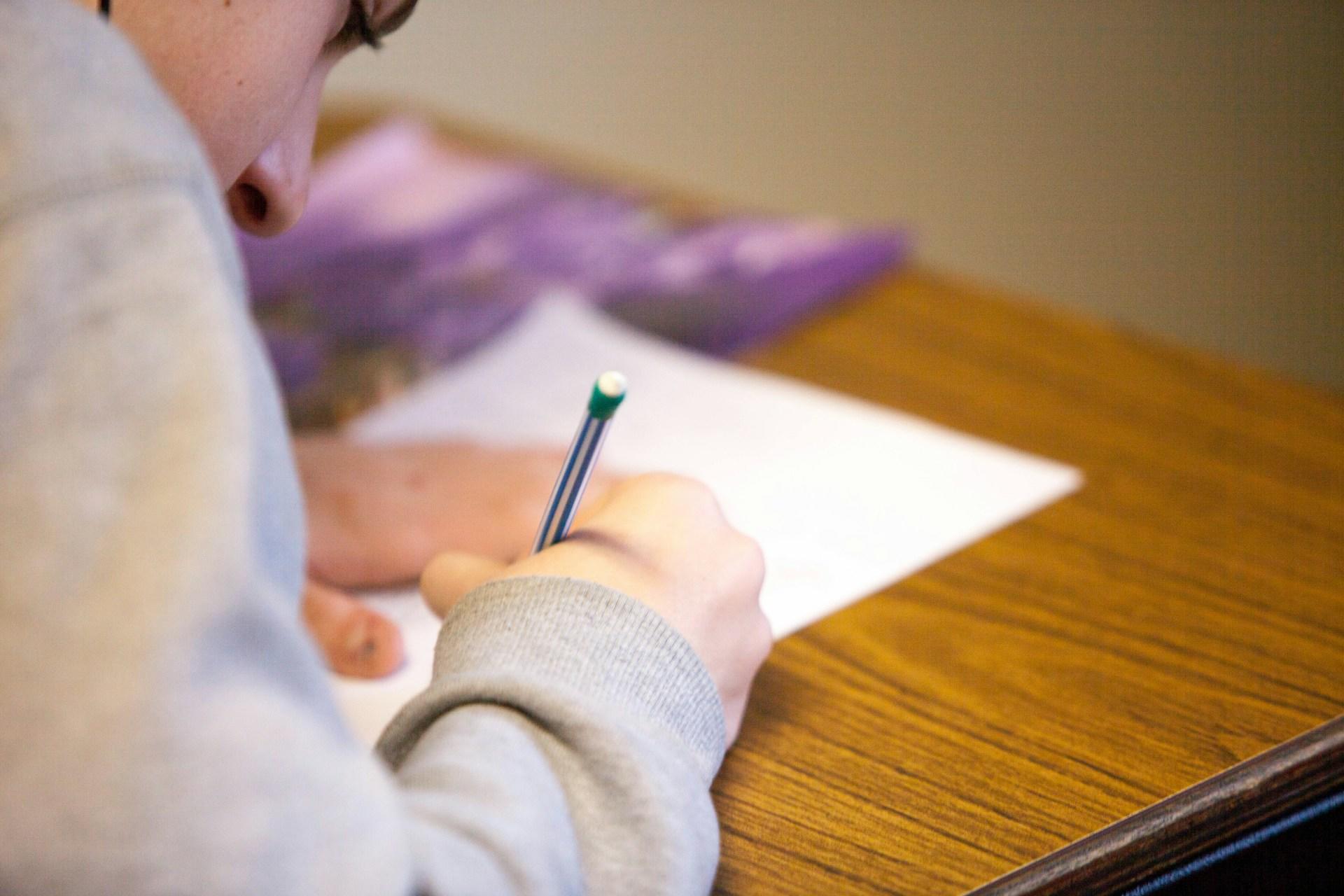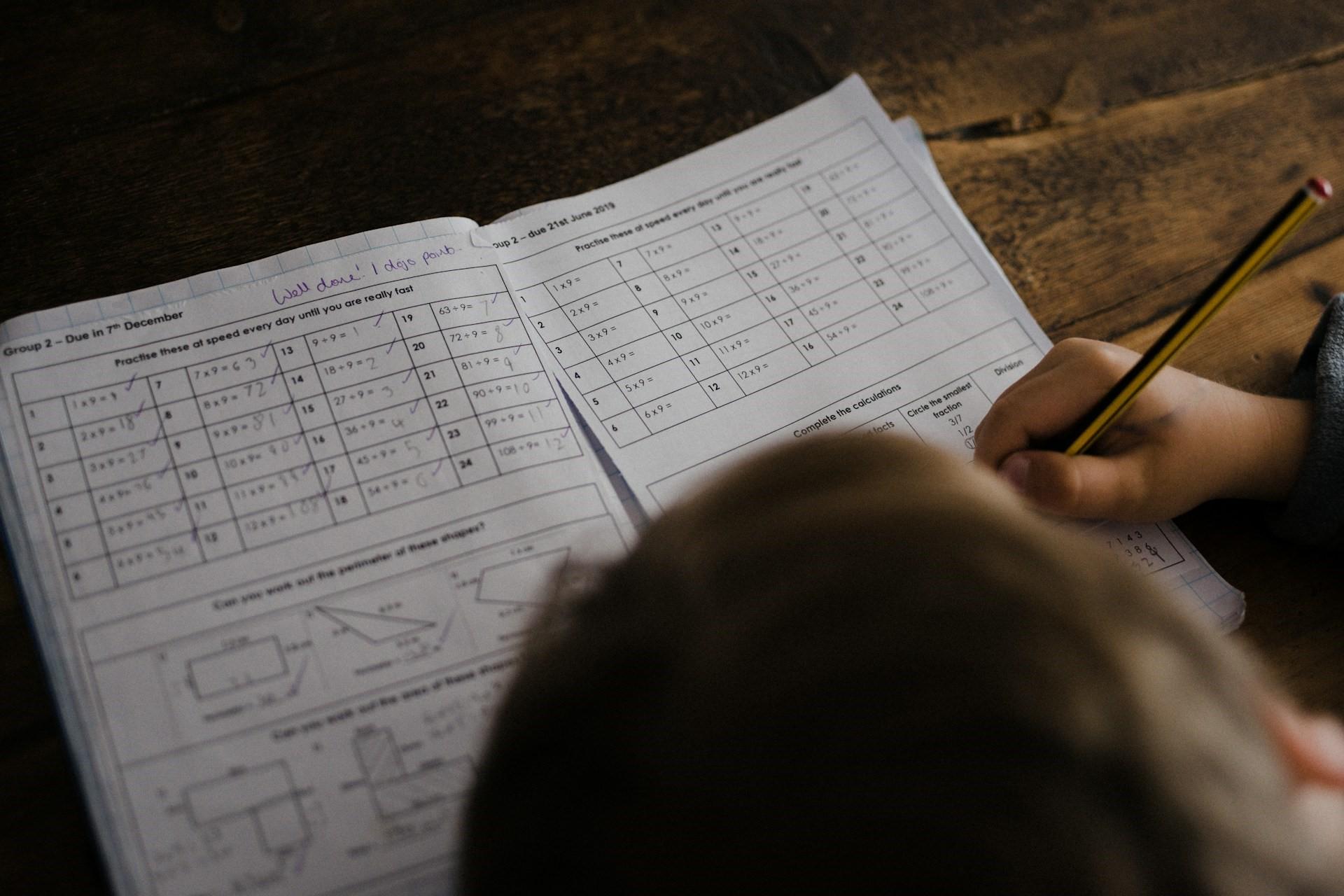Gifted students at every level of education, be it Junior Cert, Leaving Cert, a BTEC, university, or master's programmes, will dream of achieving the top grades.
For the Junior Cert, this top grade is known as a Distinction, for students achieving 90% or above.
Here, we'll look at precisely what it takes to achieve a Distinction, the strategies to help you excel, and where you can go with a Distinction.

What Is a Distinction at the Junior Cert?
Following a change a few years ago, the Junior Cert grades went from lettered grades (A, B, C, etc.) to performance descriptors like Distinction, Higher Merit, Merit, etc.
A Distinction is reserved for students who score 90% or higher in their subjects and is the top grade, showing that they have exceptional mastery of the subject and can apply said knowledge in exams and classroom-based assessments (CBAs).

The Distinction in Junior Cert would be like achieving a First-Class Honours on an undergraduate degree. For postgraduate qualifications like master's degrees, a similar system of Pass, Merit, and Distinction are actually used.
However, before a student aims for First-Class Honours, they need to do well at Leaving Cert and Junior Cert, and the top grades will certainly help. For Junior Cert, Distinction means you're ready to take on more advanced qualifications and coursework.
Students who achieve Distinction at Junior Cert are also setting themselves up for applying to competitive courses at university in STEM fields or even creative disciplines like Music.
Key Strategies for Achieving a Distinction
Achieving Distinction in the Junior Cert requires dedication and smart study strategies. Even some naturally gifted students must study a lot to get the best grades.
Here are our preferred strategies for excelling in Junior Cert and achieving the coveted Distinction grade.
1. Master the Syllabus
Exams and classroom-based assessments at Junior Cert are very specific. You're not being graded on your knowledge of a particular subject but instead on your knowledge of a specific subject as outlined in the learning objectives for the Junior Cert.
A Distinction is reserved for students who have mastered every part of the syllabus and all the learning objectives outlined in it.
Break down the syllabus into manageable sections, regularly revising them throughout the year, not just before your exams or assessments. Meeting the objectives of the syllabus will take you from Partially Achieved to Achieved.
2. Practice with Past Papers
Though the Junior Cert has shifted towards more classroom-based assessment and other ways of evaluating a student's level rather than exams, the exams are still an important part of it.
As with any qualification with exams, you're being tested chiefly on your ability to take an exam, namely your Junior Cert exams.
Get used to the types of questions for each subject by using past and sample papers. Try doing these in exam conditions to better manage time and, specifically, the work on the kinds of answers examiners will be looking for.

3. Stay on Top of Classroom-Based Assessments
Classroom-Based Assessments (CBAs) are critical in the Junior Cert grading system. They have their own grades that contribute significantly to the Junior Cycle Profile of Achievement. Though they won't specifically change the final grade you get in an exam, they're designed to help you develop the skills necessary for the exam. Typically, the better students do on their CBAs, the better they do on their exams, and the closer they'll be to achieving a Distinction.
4. Seek Feedback and Continuously Improve
Whether you aim for Distinction in Math, Science, or creative subjects like Music, you must look for teacher feedback.
Guidance from a teacher or tutor can help you fine-tune your approach to studies. Students aiming for a Distinction will correct any weaknesses in their knowledge and ensure that they're fully prepared for their final exam.
5. Effective Time Management
Time management is one of the most essential transferrable skills for excelling at any level of education.
Whether you're balancing study, revision, or coursework, it's an excellent idea to create a study plan that best uses your time.
We recommend study planners, task lists, and even time-blocking techniques to ensure your study sessions use your time optimally.
Achieving a Distinction in Different Subjects
The advice we've seen so far will generally apply to most subjects, but different subjects call for different approaches.
Here, we'll quickly examine some of the subjects and the specific areas and study strategies you should employ when aiming for a Distinction.
Remember to always check the syllabus and learning objectives, ensuring that what you're studying will be used in a classroom-based assessment or an exam.
Maths
Students who achieve a distinction in Maths will understand theoretical mathematical concepts and apply them to solving complex math problems.
Focus on core areas of mathematics like algebra, geometry, and trigonometry and regularly practice problem-solving, particularly the problems that feature on past and practice papers.
As a core subject, maths has plenty of fun and engaging online resources, and there are many different ways to learn and study it.
English
Achieving a Distinction in English is particularly difficult but not impossible. Focus on both comprehension and writing skills.
Practice analysing literary texts and identifying authors' themes, techniques, and structures.
Get better at writing by practising structuring essays using the appropriate vocabulary and supporting arguments with evidence from the texts themselves.
English is a subject where regular feedback from teachers and tutors will prove invaluable.
Science
Science subjects like Biology, Chemistry, and Physics test students' ability to link their theoretical understanding of scientific concepts with their practical and real-world applications.
For a Distinction, students must be able to intricately understand scientific concepts and demonstrate how they relate to real-world scenarios.

Music
Achieving a Distinction in creative subjects is often very challenging as you need to use theoretical knowledge and then showcase practical skills.
With Music, you must practice regularly and go beyond the basics, demonstrating creativity and mastery in your performances.
However, always make sure you're doing what's asked of you because it's very easy to do something that may be artistically very impressive but doesn't actually get you any marks. The same is true of the arts in general in academia.
The Impact of a Distinction on Your Future Education and Career Opportunities
In no way is getting a Distinction in your Junior Cert a bad thing. In fact, here are just some of the ways it will help you.
Progressing to the Leaving Cert
A Distinction in core subjects like Maths or Science at Junior Cert will set you up perfectly for continuing your education in the Leaving Cert.
This isn't to say you should relax. Still, it does mean that you'll likely transition to the next educational level much more easily than you would if you were struggling in any of these subjects.
A student with a Distinction will still learn new things at Leaving Cert, but they won't have many or any gaps in their knowledge that could hold them back once they start.
Students that achieve a Distinction in Junior Cert will likely take these subjects at the higher level in Leaving Cert, which, in turn, will make them much more likely to get onto top-tier college or university courses provided their success continues at Leaving Cert.
University Applications
Typically, university applications won't look at your Junior Cert results too closely as they'll be entirely focused on your Leaving Cert, which dictates how many points you have for university applications.
However, since the points allocated from your Leaving Cert results are linked to the level of the subjects you've done (ordinary level or higher level), students that get Distinctions at Junior Cert are often allowed to study higher level.

Scholarships and Financial Aid
When it comes to very competitive applications for scholarships and financial aid based on academic performance, most applicants will have exceptional Leaving Cert results.
When worthy applicants all have the same Leaving Cert results, certain scholarships and types of financial aid will also consider Junior Cert results and any other academic performances that would indicate which student is most deserving of aid.
Not only will Distinction grades at Junior Cert help you academically, but they can also help you financially further down the line!
Just remember that gifted students looking to get a Distinction at Junior Cert can still benefit from tutoring. A private tutor can work with you to ensure that you're getting the most out of each study session and give you the best possible chance of doing your best on your Junior Cert exams.
Summarise with AI:












